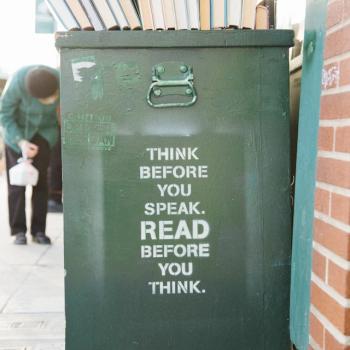
How to Deal with Incomplete Conversations in Relationships
One of the most important aspects of any relationship is effective communication. Communication, or lack thereof, can make a huge impact on relationships. My husband and I have a lot of fun together, but one issue that crops up is our communication. My husband is known for starting a conversation with me mid-sentence.
I’ve had to learn to tell him to stop, back up, and start at the beginning-more than once. In his mind, he has been reasoning out the thought but has not yet shared it with me. So he will start the conversation right where his mind is at in the middle of the thought. For me, It’s rather like walking into a meeting late. You struggle to catch up to the current state of the meeting.
Dealing with incomplete conversations is challenging. It’s important to understand the reasons behind incomplete conversations. For me, I have had to learn to tell my husband to stop and back up without feeling bad for telling him this. While for some, it may seem natural to say such a thing, it didn’t come naturally to me.
Thankfully, my husband and I have found a happy medium so that this isn’t a source of frustration in our relationship. I’ve learned funny ways to tell him that he’s “doing it again.” Sometimes, I’ll tell him that I didn’t take any mind-reading classes in school. Other times, I’ll laugh and tell him something as discombobulated as what he has just told me.
Effective Communication Is Vital In Life
It’s important to communicate your message to others in a clear, concise, and straightforward way. Consider your audience. Target your communication to the audience it’s intended for. One important factor in good communication skills is listening. If we don’t listen, we’re not going to be able to communicate effectively. Remember to pay attention to what the other person is saying. Effective communication comes with effective listening.
Before you speak, put yourself in the other person’s shoes for a moment. Understand their emotions and perspectives before you engage in a conversation. This will help you to communicate more effectively. Even if you don’t agree on something, try to look at it from the other person’s perspective. You can acknowledge the conversation without arguing. A simple statement of “I don’t see it like that. Or Let me think about that for a few minutes.” clearly acknowledges that you’ve heard what the other person has to say without arguing.
Pay attention to any cultural differences. In some cultures, it’s rude to point at anything. In other cultures, something else may be considered rude. Also, different countries use specific terms differently. Keep this in mind when communicating with others. What is considered appropriate or polite in one culture may be a huge insult in another.
When speaking to others, it’s also important to remain respectful and use positive tones. No one wants to be around negative people. Find positive ways to deliver your message; if you must deliver something negative, couch it with a positive statement before and after the negative statement. Avoid being offensive by maintaining positivity.
Take Away
Effective communication takes work from both parties until it becomes second nature. Stop, think, and respond. Avoid reacting. If something is not sitting well, take a few moments to digest the statement and then address it calmly.
Focus on solutions. If you’re having an issue with something, think of how this issue could be solved. Remember that other cultures and how others were raised frequently dictate how the other person will act or respond. Whether the communication is with a spouse, significant other, friend, coworker, or boss, these ideas will go far in helping with effective communication.
For my husband and I, when he starts to tell me something, and it sounds like it’s mid-sentence, I stop him and ask him to start over from the beginning. We have learned to laugh about it and take it in stride. What started out as annoying, I now accept and ask him to start over from the beginning, not the middle. This has helped us to use more effective communication.













